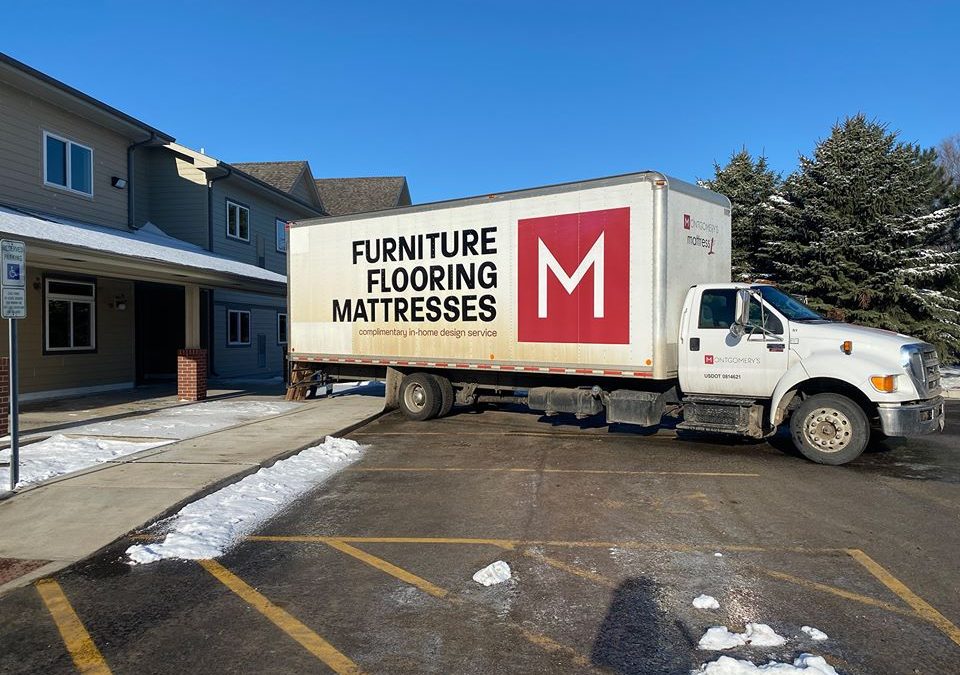After 132 years in business, you learn how to adapt.
So when COVID-19 forced Montgomery’s to cancel its annual four-day auditorium sale in Madison, the furniture retailer figured out how to sell the merchandise anyway.
Thanks to Facebook, the store started selling its minimally damaged and discontinued merchandise through a series of live sales.
“That’s been a lot of fun, and customers really seem to enjoy it,” president Eric Sinclair said. “You can imagine the auditorium sale was truckloads of product, and our warehouses are beyond full, so we take the products in small segments. It’s been amazing.”
For a business that can trace challenges throughout history back to Native American wars when it opened in 1888, the current pandemic is a reminder that better times will be coming.
“We just continue to find ways to survive by care of our customers,” Sinclair said.
Family businesses statewide are doing the same, from adjusting their business models to finding ways to support their communities.
“There is so much innovation occurring among our family businesses,” said Stephanie Larscheid, executive director of the Prairie Family Business Association.
“We’ve done our best to connect them with the resources they have needed at every stage of this pandemic, and they definitely have taken it from there.”
At Montgomery’s, design services have gone virtual, doing Skype sessions with customers, looking through rooms and going through options.
“It’s been fascinating to see how well that’s working,” Sinclair said. “One thing that’s been fun is consumers at home looking at their surroundings and having extra time on their hands are starting design projects.”
The stores’ large square footage also allows in-person shopping, he said.
“We might have one or two customers at a time, so we’re not on top of each other,” he said. “I’ve found these might be times for consumers to get the best deals. If they are comfortable with it, they can save a lot purchasing right now.”
Montgomery’s also has changed its delivery approach to ship and inspect the products while leaving them in customers’ garages without entering homes.
To give back, the store hosted blood mobiles in its parking lots to encourage donations.
“We’re always trying to figure out how to give back to the communities that are good to us,” Sinclair said.
High-demand time
In Watertown, Moffatt Products has the same mind-set, even as it juggles unprecedented demand for its products. The third-generation family business designs and manufactures a variety of flex-arm products.
“Immediately, we saw several of our top customers are definitely making extra products right now to meet the surge capacity nationally,” said Mark Moffatt, the third generation to help lead the business, who serves as its general manager.
“Hospital beds and ventilators are two of the product lines we’re supporting components for, and they’re both surging to keep up with demand.”
Moffatt manufactures a line management kit consisting of two flexible arms that attach to the headboard of a hospital bed on both sides of a patient’s head.
“These beds are transport beds,” Mark’s father and company president Dave Moffatt explained. “To meet demand, our clients have had to streamline the product line down to four beds, and they aren’t doing anything else unless there’s an emergency. Our products are used on two of the four beds, so the volume is soaring on those.”
The company also makes a flexible arm that holds a junction where breathing tubes come together in front of a patient, holding it in a comfortable position.
“We made sure we had inventory, and sure enough, after two weeks the orders really began to flow,” Dave Moffatt said. “I think everybody’s building ventilators are much as they can right now.”
Moffatt Products has reconfigured its production line to involve multiple people in processes that typically require one or two. And it has worked with suppliers to get a “much higher flow of material coming our way and sustain it,” Mark Moffatt said.
The biggest concern is keeping the 20-person team healthy.
“And not knowing how the crisis is going to affect our company and the community,” Dave Moffatt said. “The picture can change so rapidly that’s probably our biggest concern.”
They also are helping their community through the crisis. Mark’s wife, Jenna, did her graduate studies in public health. She’s part of the company ownership and is a stay-at-home mother of three who serves on several community boards.
“It was becoming evident there was a need for delivery of necessities to high-risk individuals’ homes, so I started asking questions in the community and came up with a solid support network to create a volunteer system,” she said. “Individuals purchase their necessities, and we provide a volunteer to do pickup and delivery to their homes contact-free.”
Read full article from Prairie Family Business Association, an outreach center of the University of South Dakota Beacom School of Business. Prairie Family Business Association publishes the “Headlines in the News” monthly email available for subscription.
Family Enterprise USA is the organization that represents all family businesses on a national level in DC; it is not unique to any industry. FEUSA is different from other organizations because it represents and advocates for the families of family businesses and the issues, they face running their businesses every day. Our sole mission and purpose is to promote family businesses and their job growth in America. We also support the work of Family Business Centers across the country. We hope your family will choose to be a member of FEUSA. Family Enterprise USA is a 501(c)(3) non-profit organization. Family foundations can donate.

